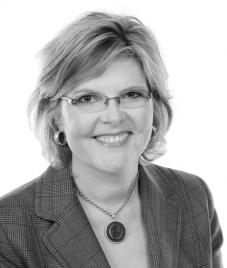Concerning Financials, You Might Have SKE If…
Southern comedian Jeff Foxworthy has made millions joking about rednecks. As a descendant of an Alabama plumber, I can relate to many of his quips. Although my family never “found a car as they were mowing the lawn,” the jokes about dogs, trucks, fishing, porches and barbeque do make me laugh out loud. As Foxworthy’s famous line goes, “you might be a redneck if…”
I have had people assess my intelligence as lower than average because of my accent and was glad to see Jeff Foxworthy leading a national intelligence quiz game show. He’s shown himself to be a very smart guy and obviously a seriously good marketer and business man.
How about you? How smart are you concerning your area of responsibility? And if you are an auditee, is your auditor correctly assessing your SKE?
What is SKE?
Yes, yet another acronym to learn. SKE stands for skills, knowledge and experience. Many organizations use the term SME - or “subject matter expert” - when describing their in-residence experts. In the case of a government audit, the auditor has to determine your SKE level before he or she can provide you with any service other than an audit service.
As hard as it is for some people to believe, auditors end up drafting the financial statements for some of their clients and then turn around and issue them a clean audit opinion. The Government Accountability Office in the Government Auditing Standards considers drafting the financial statements as a “nonaudit service.”
Before an auditor can provide a nonaudit service, he or she must ensure that the client “has SKE,” in essence, that the client can tell if the auditor made a mistake with the service. In the case of drafting the financial statements, the auditor would have to make sure that the client has a basic understanding of financial statements.
Many auditors’ response to this requirement is, “Well, if the client knew about financial statements, they’d create them themselves and they wouldn’t need us.” But GAO doesn’t require that clients be able to actually do the work, just that they have enough of an understanding of what is going on to be able to detect a significant mistake.
The Government Auditing Standards addresses SKE in Chapter 3.34, stating:
“Before an auditor agrees to provide a nonaudit service to an audited entity, the auditor should determine whether providing such a service would create a threat to independence, either by itself or in aggregate with other nonaudit services provided, with respect to any GAGAS audit it performs. A critical component of this determination is consideration of management’s ability to effectively oversee the nonaudit service to be performed. The auditor should determine that the audited entity has designated an individual who possesses suitable skill, knowledge or experience, and that the individual understands the services to be performed sufficiently to oversee them. The individual is not required to possess the expertise to perform or reperform the services. The auditor should document consideration of management’s ability to effectively oversee nonaudit services to be performed.”
Did you catch the documentation sentence? The auditor doesn’t just conduct an assessment of your SKE in his or her mind, but the auditor would have to document the rationale for determining that the client has the required levels of SKE.
When it comes to financial statements, SKE might include:
- experience creating financial statements;
- an accounting degree;
- a business degree;
- participation in a formal class regarding financial statements;
- personal study;
- ability to answer questions about the financial statements; and/or
- years of coaching by the auditor/accountants.
I am going to borrow a paragraph from another section of the Government Auditing Standards, also known as the Yellow Book, on auditor competence. Did you catch that - this paragraph is about auditor competence, not client competence? Still, I think it can help advise auditors when it comes to evaluating SKE. Chapter 3.71 states:
“Competence is derived from a blending of education and experience. Competencies are not necessarily measured by years of auditing experience because such a quantitative measurement may not accurately reflect the kinds of experiences gained by an auditor in any given time period. Maintaining competence through a commitment to learning and development throughout an auditor’s professional life is an important element for auditors. Competence enables an auditor to make sound professional judgments.”
We all know folks who have degrees, but don’t seem to know the simplest of facts. Competency is a blend of all. I especially like the last sentence that states, “Competence enables … sound professional judgment.” Sound professional judgment is a synonym for SKE.
Please also note that while I am discussing SKE in relationship to financial statements, SKE is also necessary if an auditor performs other nonaudit services, or what many professionals call “consulting services.” For a list of nonaudit services that the GAO specifically addresses, see Chapters 3.45-3.58 in the Yellow Book.
If you’re a client and you don’t have SKE, don’t be surprised if your auditor refuses to draft your financial statements until you get some. Now, I am off take the car transmission out of my bathtub so I can get gussied up for the ho-down tonight.



